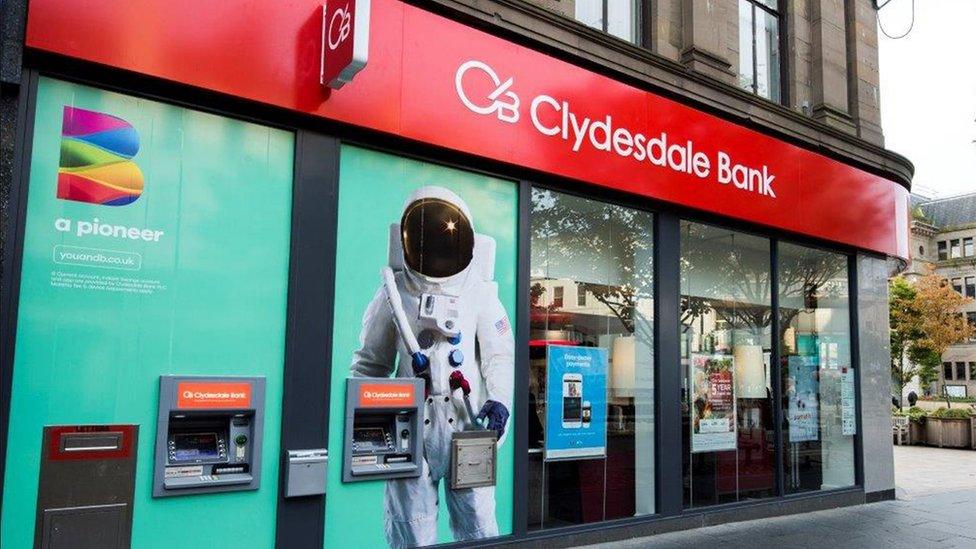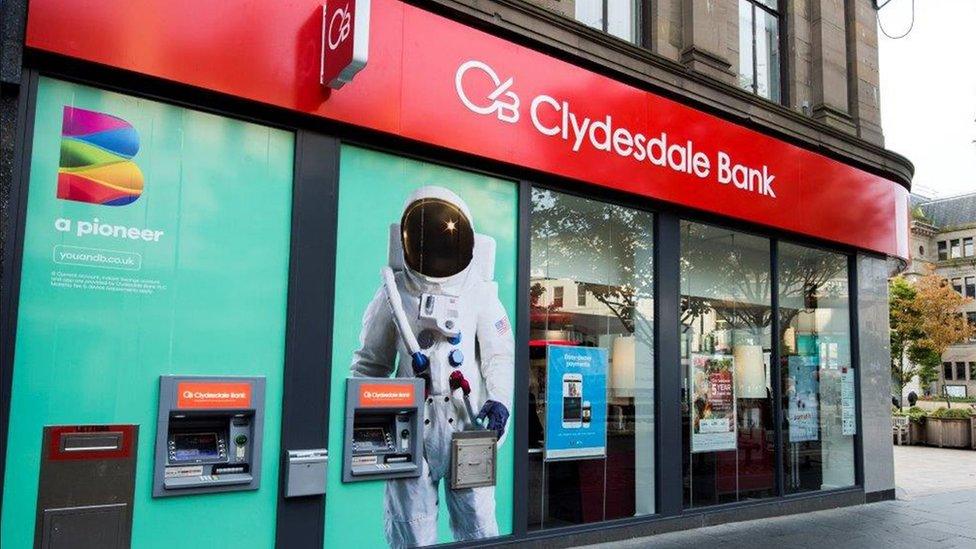Clydesdale Bank owner sets aside another £150m for PPI
- Published

The owner of Clydesdale Bank and Yorkshire Bank has had to set aside a further £150m to cover the cost of mis-selling payment protection insurance.
The full-year financial results for parent company CYBG show the cost of the scandal has pitched it into a statutory loss of £145m.
The additional PPI funding comes on top of £300m it previously promised.
Much of that was funded under the terms of its floatation by former owner National Australia Bank.
In addition, a further £44m is being set aside to tackle other "legacy" issues from mis-selling.
The bank faces legal action by a group of small business customers, who say a complex financial product was highly damaging to their businesses when interest rates fell close to zero.
In total, CYBG has set aside more than £2.6bn to repay customers who were mis-sold PPI. It has received 483,000 complaints, and with an industry-wide deadline set next year for PPI claims, it is planning for a further 83,000.
The uplift in complaints and compensation payments has followed a government-backed advertising campaign to draw attention to next year's deadline, featuring a model of Arnold Schwarzenegger.
The full-year CYBG results, for the year to September, show an underlying profit of £331m, up by 13%.
Meanwhile, costs have continued to fall, by 6%. There has been a fall of nearly 400 in the headcount, to reach a monthly average over the year to September of 6,460.
'Future ambitions'
Last month, CYBG took over Virgin Money, paying £1.6bn for it, and so began a three-year programme of combining the banks.
The licences are expected to be combined in one by the end of next year.
The Glasgow-headquartered lender has said it will use only the Virgin Money brand for individual customers. It is yet to decide if the Clydesdale and Yorkshire brands will be retained for the division handling SMEs, or small and medium-sized enterprises.
Chief executive David Duffy said: "While the additional PPI provision charge required in 2018 is disappointing, the group's strong capital position means we have been able to absorb this without any impact on our strategy and future ambitions."
Looking ahead, he added: "Clearly, Brexit negotiations mean the external political and macro-economic environment remains inherently uncertain.
"We have planned for a period of uncertainty, but it is impossible to ignore the lower levels of business confidence, especially for SMEs, while the final specific outcome of negotiations remains unclear."
- Published19 November 2018

- Published30 January 2018
